Structural & Acoustics Blog Posts
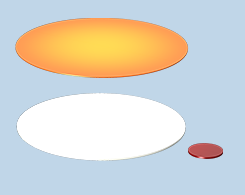
Study Sensor Performance in Rapid Thermal Annealing with Simulation
Rapid thermal annealing (RTA) is one step in the process of producing semiconductors. You can optimize RTA conditions by studying the phenomena involved via modeling.
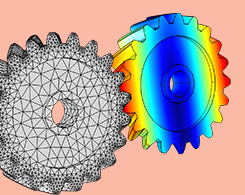
How to Evaluate Gear Mesh Stiffness in a Multibody Dynamics Model
What is gear mesh stiffness? Why is it important to account for in a multibody dynamics model? How can it be simulated with COMSOL Multiphysics? Get answers here.
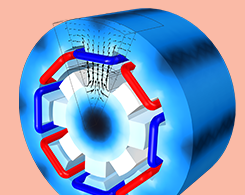
Analyze a Variety of Rotating Machines with the Rotordynamics Module
Get an introduction to the specialized features and functionality available in the Rotordynamics Module for modeling rotating machinery.

Can a Stiffness Be Negative?
Have you ever encountered an FEM formulation where the force does not monotonically increase with displacement? We discuss some examples of this behavior: negative stiffness.

Why Is Ice Slippery Enough for Skiing and Skating?
The original theory for why ice is slippery involves the concept of pressure melting. However, the true answer involves more research, debate, and thought.

Why Doesn’t the Ice Cream in a Baked Alaska Melt?
The ice cream in a baked Alaska stays frozen, even when placed in a hot oven. How is this possible? We investigate this mysterious dessert with heat transfer simulation.
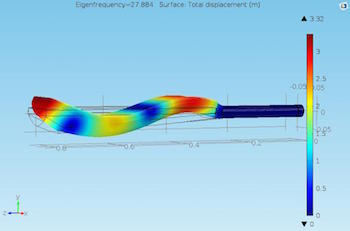
Identify a Cricket Bat’s Sweet Spots with Structural Mechanics Analysis
Research into the science behind cricket usually focuses on the performance of the batsmen and bowlers. One area of cricket that lacks in research is the cricket bat itself…
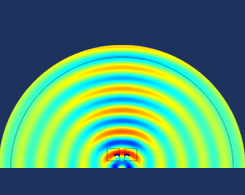
How to Use Acoustic Topology Optimization in Your Simulation Studies
Today, guest blogger René Christensen of GN Hearing discusses the importance of acoustic topology optimization and how to apply it in COMSOL Multiphysics. Topology optimization is a powerful tool that enables engineers to find optimal solutions to problems related to their applications. Here, we’ll take a closer look at topology optimization as it relates to acoustics and how we optimally distribute acoustic media to obtain a desired response. Several examples will further illustrate the potential of this optimization technique.
